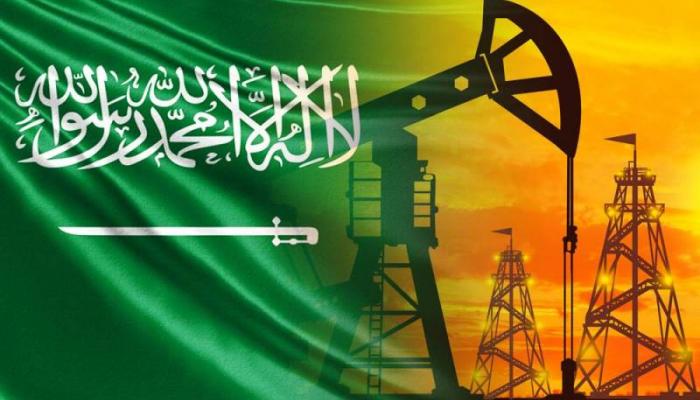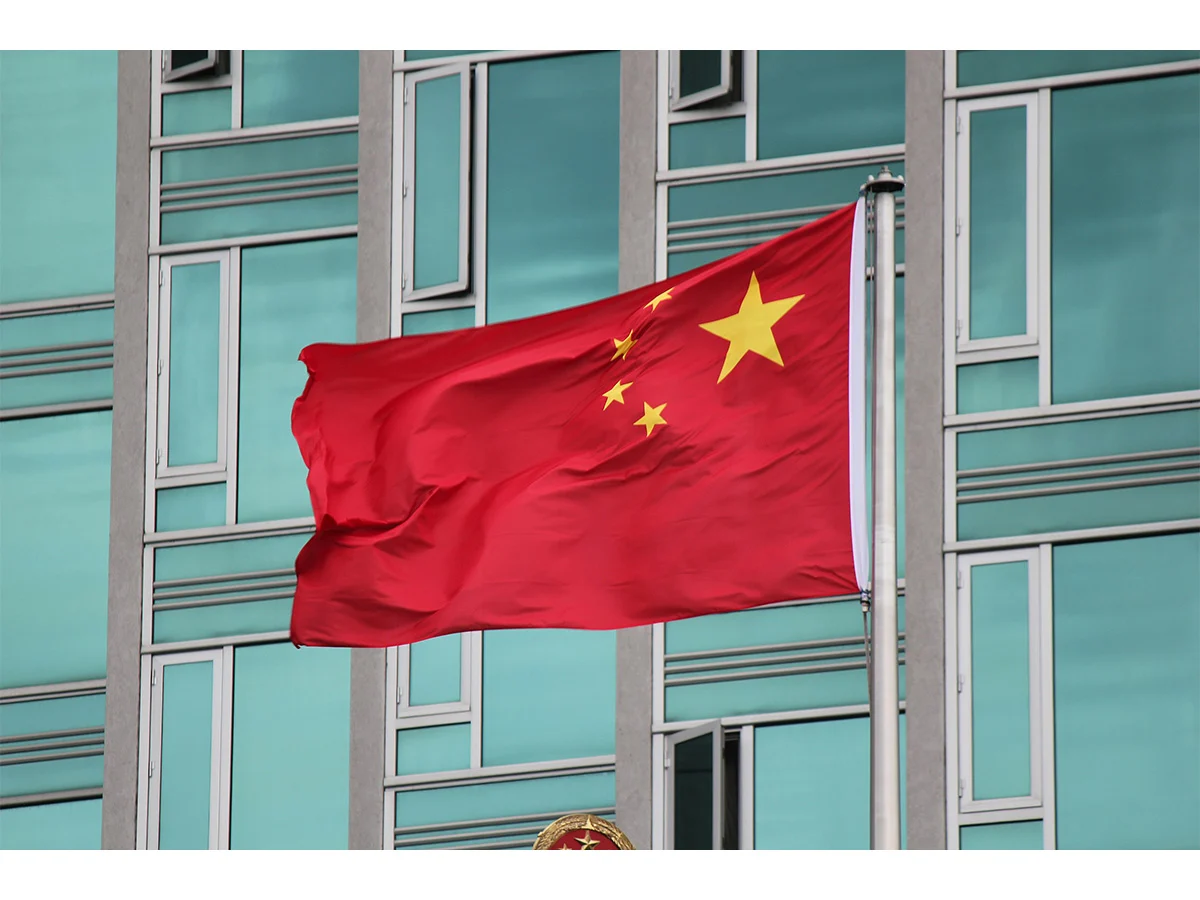Publisher: Maaal International Media Company
License: 465734
Saudi Arabia Ranked World’s Richest Country in Terms of Natural Resource Wealth
Resource wealth plays a vital role in the economic prosperity and development of nations. Countries endowed with abundant natural resources have the potential to harness their wealth to drive economic growth, attract investments, and improve the living standards of their citizens, InformationGuideNigeria said in a report.
The following are top 15 wealthiest countries in terms of resource wealth, considering factors such as oil, natural gas, metals, timber, and other valuable resources that have shaped their economies and positioned them as global powerhouses.
The top 15 Wealthiest Counties in terms of resource wealth Are:
اقرأ المزيد
- Saudi Arabia – Oil, natural gas, metals
Saudi Arabia stands as one of the wealthiest countries in terms of resource wealth due to its vast reserves of oil, natural gas, and metals. The country’s oil reserves are among the largest globally, enabling it to be a dominant player in the global oil market.
Additionally, Saudi Arabia possesses significant deposits of natural gas and valuable metals, further enhancing its resource wealth. These resources have been instrumental in driving the country’s economic growth and supporting various sectors such as energy, manufacturing, and construction.
- Russia – Oil, natural gas, metals, timber
Russia’s resource wealth is characterized by its substantial reserves of oil, natural gas, metals, and timber. The country’s vast landmass and rich resource deposits have positioned it as one of the wealthiest nations in terms of natural resources.
Russia is a major global player in the oil and natural gas industry, exporting significant amounts to the international market. Moreover, its reserves of metals and timber contribute to its economic prosperity, supporting industries such as mining, manufacturing, and construction.200 Romantic Love Messages
- United Arab Emirates – Oil, natural gas, metals
The United Arab Emirates (UAE) is renowned for its significant reserves of oil, natural gas, and metals, making it one of the wealthiest countries in terms of resource wealth. The UAE’s oil reserves have been a driving force behind its economic growth and global influence
It has successfully leveraged its resource wealth to diversify its economy, investing in sectors such as finance, real estate, tourism, and infrastructure. Additionally, the country’s abundant reserves of metals contribute to its wealth and support industries such as construction and manufacturing, further boosting its economic development.10
- Venezuela – Oil, natural gas, gold
Venezuela possesses vast reserves of oil, natural gas, and gold, positioning it as one of the wealthiest resource-rich countries. The country’s oil reserves are among the largest globally, providing a significant source of revenue. However, political and economic challenges have hindered its ability to fully capitalize on this resource wealth. In addition to oil and natural gas, Venezuela’s gold reserves contribute to its overall resource wealth. These resources have historically played a crucial role in the country’s economy, although efforts are needed to address the current economic downturn and unlock the potential of its resource wealth.
- Qatar – Oil, natural gas
Qatar’s resource wealth is primarily derived from its abundant reserves of oil and natural gas. As one of the world’s leading natural gas exporters, Qatar has established itself as a wealthy nation The country’s resource wealth has been utilized to develop a diverse economy, including investments in sectors such as finance, real estate, and tourism
Qatar’s strategic location and resource wealth have also made it a regional hub for trade and commerce. The country’s focus on sustainable development and innovation further strengthens its position as one of the wealthiest resource-rich nations
- Kuwait – Oil, natural gas
Kuwait’s wealth is deeply rooted in its significant reserves of oil and natural gas. The country is a major global player in the oil industry and has benefited greatly from its resource wealth. Kuwait’s oil reserves have enabled economic prosperity, driving investments and supporting various sectors such as energy, finance, and construction. Moreover, its natural gas reserves contribute to the country’s overall resource wealth. Kuwait has effectively managed its resource wealth to foster economic development and improve the standard of living for its citizens
- Norway – Oil, natural gas, fish
Norway’s wealth is primarily derived from its extensive oil and natural gas reserves, making it one of the wealthiest countries in terms of resource wealth. The discovery of oil in the 1960s transformed Norway’s economy, allowing for significant investments in infrastructure, education, and welfare programs. The country’s resource wealth has been effectively managed through the establishment of a sovereign wealth fund, ensuring long-term economic stability. Furthermore, Norway’s fishing industry adds to its resource wealth, providing a vital source of income and employment. The combination of oil, natural gas, and fishing resources has propelled Norway’s economic success
- Canada – Oil, natural gas, metals, timber
Canada possesses vast reserves of oil, natural gas, metals, and timber, contributing significantly to its resource wealth. The country’s oil reserves, primarily located in Alberta’s oil sands, have positioned Canada as one of the world’s top oil producers. Additionally, Canada is rich in natural gas reserves, supporting its energy needs and exports. The mining sector, fueled by valuable metals such as gold, copper, and nickel, contributes to the country’s resource wealth. Furthermore, Canada’s extensive forests provide a renewable resource in the form of timber. These diverse resources have played a vital role in driving Canada’s economy and supporting various industries.
- Algeria – Oil, natural gas, metals
Algeria’s resource wealth lies in its substantial reserves of oil, natural gas, and metals. The country is one of Africa’s leading oil producers, with significant reserves that contribute to its economic prosperity. Algeria’s natural gas reserves are also substantial, enabling it to export to international markets. Moreover, the country possesses valuable metal deposits, including iron ore and zinc. These resources have been crucial in supporting Algeria’s economy, driving investments, and promoting industrial development.
- Angola – Oil, diamonds, timber
Angola’s resource wealth is centered around its significant oil reserves, which account for a significant portion of its economy. The country is one of Africa’s largest oil producers and has attracted substantial investments from international oil companies. In addition to oil, Angola possesses valuable diamond reserves, making it one of the world’s leading diamond producers. Furthermore, the country’s timber resources contribute to its overall resource wealth. While efforts are being made to diversify the economy, Angola’s resource wealth remains a crucial driver of its economic growth.
- Iran – Oil, natural gas, metals
Iran possesses substantial reserves of oil, natural gas, and metals, making it one of the wealthiest countries in terms of resource wealth. The country’s vast oil reserves have been instrumental in supporting its economy and generating significant revenues. Additionally, Iran is one of the world’s top natural gas producers, providing both domestic energy and export opportunities. Iran’s metal reserves, including iron ore and copper, further contribute to its resource wealth, supporting industries such as construction and manufacturing.
- Iraq – Oil, natural gas, metals
Iraq’s resource wealth is primarily centered around its significant reserves of oil, natural gas, and metals. The country’s oil reserves are among the largest globally, providing a vital source of revenue. Iraq is also a major natural gas producer, with substantial reserves that support domestic energy needs and export opportunities. Additionally, Iraq possesses valuable metal deposits, including copper and gold. However, political instability and security challenges have affected the country’s ability to fully capitalize on its resource wealth.
- Namibia – Diamonds, uranium, copper
Namibia’s resource wealth primarily consists of diamonds, uranium, and copper. The country is one of the world’s largest diamond producers, with substantial diamond deposits that contribute to its economic growth. Namibia is also a significant producer of uranium, a valuable resource for nuclear energy production. Furthermore, the country’s copper reserves support its mining sector and contribute to its overall resource wealth. These resources have been crucial in attracting investments and driving Namibia’s economic development.
- Australia – Coal, iron ore, natural gas, gold
Australia is rich in resources, including coal, iron ore, natural gas, and gold, making it one of the wealthiest countries in terms of resource wealth. The country is the world’s largest exporter of coal and iron ore, which are crucial inputs for steel production. Australia’s abundant natural gas reserves support its energy needs and provide export opportunities. Additionally, the country’s gold reserves contribute to its overall resource wealth. The extraction and export of these resources have been instrumental in driving Australia’s economic growth and prosperity, supporting industries such as mining, manufacturing, and energy.
- United States – Oil, natural gas, metals, coal
The United States possesses abundant reserves of oil, natural gas, metals, and coal, contributing to its resource wealth. The country is one of the world’s top oil producers, with significant reserves that have played a critical role in its economic development. The United States is also a major natural gas producer, providing a source of clean energy and export opportunities. Moreover, the country’s vast metal reserves, including copper and aluminum, support various industries such as construction and manufacturing. Additionally, coal deposits contribute to the country’s resource wealth, although there has been a shift toward cleaner energy sources in recent years.
Conclusion:
Resource wealth has the potential to transform nations, enabling economic growth, attracting investments, and improving the quality of life for citizens. The countries listed above demonstrate the significant role that natural resources play in shaping a nation’s wealth. However, it is important for these countries to diversify their economies, invest in sustainable practices, and ensure equitable distribution of resource revenues to maintain long-term prosperity and mitigate dependence on finite resources. By effectively managing their resource wealth, these nations can continue to drive economic development and provide a better future for their citizens








